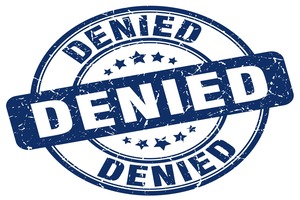A Chapter 13 bankruptcy filing can help homeowners manage mortgage arrears. Chapter 13 allows you to get your financial situation back on track while still protecting your most valuable assets, including your home. It is common for homeowners to choose Chapter 13 bankruptcy because it avoids the devastation of foreclosure, even if they have already fallen behind on payments.
Mortgage arrears occurs when a homeowner has missed payments in transactions where regular payments are required by contract. In some cases, when an account goes into arrears, the mortgage lender will demand a lump sum payment or threaten foreclosure. For many, maintaining a monthly mortgage payment might be possible with a few financial improvements, but making a lump sum payment is far from possible.
Dealing with Arrears through Bankruptcy
The good news is that even if your mortgage is in arrears and/or you are being threatened with foreclosure, it is possible to improve your situation and maintain ownership of your home.
For many, Chapter 13 bankruptcy provides needed relief because it forces mortgage lenders to accept arrears payments in small increments instead of a lump sum. The court determines the re-payment plan that is typically spread out over the course of three to five years. In addition to normal monthly payments, the arrears are portioned out through the new monthly payments.
So, let’s say a mortgage is three months in arrears and the homeowner’s monthly payment was $1000. The Chapter 13 plan is for three years, so each month for the course of those three years, the homeowner will pay $1000 each month plus a portion of the $3000 in arrears payments owed, equally divided into $83.33.
Keep in mind, your mortgage might include additional amounts that are earmarked for property tax or homeowner’s insurance, so the math might not work out as neatly. The point is the amount back-owed is divided among the months of the repayment plan, allowing the homeowner to pay back what payments were missed and keep up with the upcoming payments, while still keeping monthly payments manageable.
By the end of the Chapter 13 repayment plan, a homeowner is caught up on back-owed payments and the regular payments for those three years.
If you would like to estimate your Chapter 13 repayment plan, take the free calculator below.
To learn more about how bankruptcy payment plans are calculated, visit USCourts.gov.
Chapter 13 Gives You a Fresh Start
Dealing with arrears and getting your financial situation back on track over the course of several years is one of the main reasons people choose to file for bankruptcy. It makes it possible to maintain ownership of a home and make right what went wrong with mortgage payments and other debts. This is why so many consider filing for Chapter 13 bankruptcy such a viable option – it’s a plan for a fresh financial start.
If you have questions about arrears or you are behind on mortgage payments or any other debts, and you want to know if bankruptcy might be the right option or you, we can help. Contact the Law Offices of Robert M. Geller at 813.254.5696 to discuss your situation.




























![Signs That You May Need to File Bankruptcy [Infographic]](https://www.attorneyfortampabay.com/wp-content/uploads/2021/01/signs-chap7-v-chap13.jpg)
![How To File for Bankruptcy [Infographic]](https://www.attorneyfortampabay.com/wp-content/uploads/2020/07/bankruptcy-steps-infographic-web.jpg)















